
- Appointments
- Awards
- Bills & Acts
- Books & Authors
- Committees
- Deaths
- Defence
- Economic
- Environment
- Finance
- Important Days
- International
- Miscellaneous
- National
- Persons in News
- Places in News
- Regional
- Reports
- Resignations & Retirements
- Science & Technology
- Sports
- June 2020 - Exams Resources
- Current Affairs - Quiz
- Current Affairs - Test
- Current Affairs - PDF
Current Affairs June 2020 - Finance
1 - RBI announced creation of Payments Infrastructure Development Fund
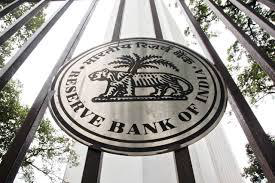
The Reserve Bank of India announced the creation of a Rs 500-crore payments infrastructure development fund (PIDF) to encourage acquirers to deploy points of sale (PoS) infrastructure - both physical and digital modes - in tier-3 to tier-6 centres as also in northeastern states. RBI will make an initial contribution of 250 crores to the PIDF covering half the fund and remaining contribution will be from card issuing banks and card networks operating in the country.
The PIDF will be governed through an advisory council and managed and administered by the RBI. The setting up of this fund is in line with the recommendations of the report of the committee on deepening of digital payments, chaired by Nandan Nilekani.
2 - HDFC Bank launched Summer Treats campaign

HDFC Bank launched the Summer Treats campaign, which has exciting offers to meet the changing needs of merchants as well as salaried and self-employed customers. The needs such as demand for safe digital payments and private transport. Under this campaign, bank will offer no cost EMI, no down payment for large appliances, discounts and cashback on select brands, 50% extra Reward Points on online spends using Credit Cards etc.
The exclusive offers on the banks lending products include up to 70% lower EMI for first three months on car loans and up to 50% lower EMI for three months on two-wheeler loans.
3 - RBI proposed comprehensive framework for sale of loans
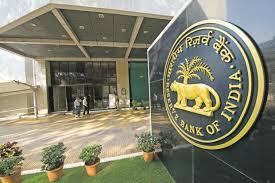
The Reserve Bank proposed a comprehensive framework for sale of loan exposures, which could be standard, sub-standard or non-performing assets (NPAs), as part of the overall exercise to deepen the market for lending. Loan sales may be resorted to by lenders for any reasons ranging from strategic sales to rebalance their exposures or as a means to achieve resolution of stressed assets by extinguishing the exposures.
A dynamic secondary market for bank loans will also ensure proper discovery of credit risk pricing associated with each exposure and will be useful as a leading indicator for impending stress.
4 - NABARD extended 270 crore rupees to Assam Gramin Vikash Bank
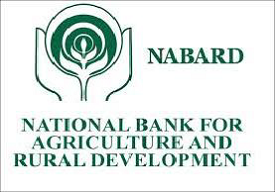
National Bank for Agriculture and Rural Development has extended a Special Liquidity Facility (SLF) of 270 crore rupees to Assam Gramin Vikash Bank to support the agricultural activities of the farmers amid COVID-19 pandemic.
The special liquidity facility is with a view to augment the resources of the Cooperative banks and RRBs to enable them to extend credit to farmers for taking up pre-monsoon and kharif (summer sown crops) 2020 operations. NABARD is a development financial institution, promoting sustainable and equitable agriculture and rural development.
5 - RBI sets up panel to review ownership, corporate structure of Private sector banks
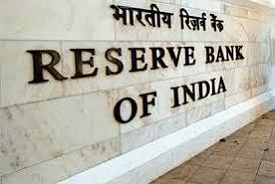
The Reserve Bank of India has constituted a five-member Internal Working Group to review the guidelines related to ownership, governance and corporate structure of private sector banks. The committee will be headed by Central Board Director P K Mohanty and it will submit its report by 30th September, 2020.
The panel will examine norms for promoter shareholding at the initial/licensing stage and subsequently, along with the timelines for dilution of the shareholding. The panel will also examine and review the eligibility criteria for individuals or entities to apply for banking license and make recommendations on all related issues.
6 - ICICI Bank introduced Insta FlexiCash paperless overdraft facility for salary accounts

ICICI Bank has launched a new facility called Insta Flexicash that enables its Salary Account customers to get approval for overdraft (OD) instantaneously and in a paperless manner. It is a end-to-end fully digital facility that can be availed using the Banks internet banking platform.
The facility will be sanctioned within 48 hours of application. Interest should be paid only on the actual OD amount utilised. The Bank offers customers a credit limit worth up to three times their net salary.
7 - HDFC ERGO launched Indias 1st Pay as you Fly insurance

HDFC ERGO partnered with TropoGo, a Deep Tech startup to offer commercial drone owners and operators Third Party Liability claims cover for property damage and bodily injuries. This policy is the first of its kind in the non-life insurance segment in India which will be offered on-demand to customers on Pay as you Fly.
Unmanned Aerial Vehicles or drones are being actively used by State and Central Government in the fight against Covid19. This cover will be offered to registered drone owners and operators holding a commercial drone pilots certificate or a license issued by certified training schools in India.
8 - SARAL scheme launched by ICICI Home Finance for affordable house loan
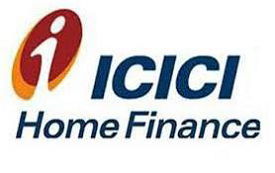
ICICI Home Finance (ICICI HFC) launched SARAL, an affordable housing loan scheme. Under this scheme, special rates for women, lower and middle income groups will be offered, having maximum household income up to Rs 6 lakh annually. The housing loan scheme provides affordable housing loans up to Rs 35 lakh at an interest rate starting from 7.98% for a maximum tenure of 20 years.
ICICI Home Finance Company Limited is registered with National Housing Bank (NHB), the regulatory authority for the Housing Finance Companies.
9 - Cabinet approved 2% interest subvention to Shishu loan accounts under PMMY
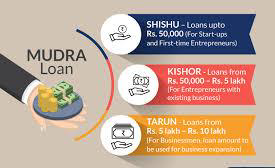
The Union Cabinet approved a scheme for interest subvention of 2% for a period of 12 months, to all Shishu loan accounts under Pradhan Mantri Mudra Yojana (PMMY) to eligible borrowers. The scheme will be extended to loans which had an outstanding as on 31st March, 2020 and not in Non-Performing Asset (NPA) category.
The estimated cost of the Scheme would be approximately Rs. 1,542 crore which would be provided by the Government of India. Loans for income generating activities up to Rs. 50,000 rupees under PMMY are termed as Shishu loans. The scheme will be implemented through SIDBI.
10 - Yes bank partnered with Affordplan to launch health card
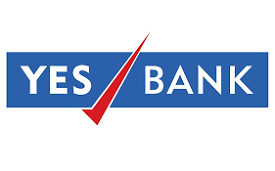
Yes Bank in partnership with Affordplan, has announced the launch of Swasth Card. It is a co-branded healthcare card, under Swasth program. The bank's wallet has also been integrated on Affordplan Swasth to enable wallet QR scan for making payments to merchant partners empaneled on the Affordplan Swasth app.
The card provides access to goal-based savings projection chart for medical treatment based on treatment inputs. Affordplan is a Delhi-based fintech company specializing in healthcare.
11 - Government to bring Cooperative banks under the supervision of RBI

The Union Cabinet has approved to bring in an ordinance that will allow RBI to supervise all co-operative banks. The ordinance will bring government banks, including 1,482 urban cooperative banks and 58 multi-state cooperative banks, under supervisory powers of RBI.
The decision to bring the cooperative banks under RBI's supervision will give an assurance to more than 86 million depositors in these banks that their money amounting to Rs 4.84 trillion will stay safe.
12 - Karnataka Bank launched KBL Micro Mitra
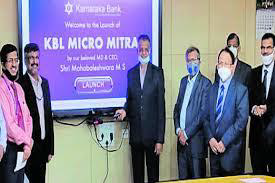
The Karnataka Bank has launched a new product, KBL Micro Mitra, wherein financial assistance up to Rs.10 lakhs can be provided to the Micro manufacturing and service enterprises either for working capital or for investment purposes. The facility comes with a simplified procedure and competitive rate of interest.
Micro Manufacturing Enterprises are defined as those enterprises where investment in plant & machinery does not exceed Rs 25 lakh while in Micro Service Enterprises it does not exceed ten lakh rupees.
13 - Government launched Rs 20,000-Crore Credit Guarantee Scheme for MSMEs

The government launched a Rs 20,000-crore credit guarantee scheme to support distressed small businesses through the Credit Guarantee Scheme for Subordinate Debt (CGSSD). The scheme is also called as Distressed Assets Fund- Sub- Ordinate Debt for MSMEs.
Under the CGSSD, the government will provide a subordinate debt facility to the promoters of micro, small and medium enterprises that are either distressed or classified under non-performing assets. The promoters will be provided credit equal to 15% of their stake (equity plus debt) or Rs 75 lakh, whichever is lower. The scheme will be operationalised through the Credit Guarantee Fund Trust for MSEs (CGTMSE).
14 - Reserve Bank of India extended enhanced borrowing limit to banks under MSF till Sept 30
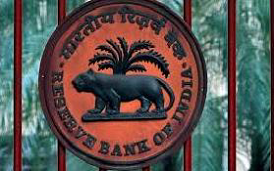
The Reserve Bank of India (RBI) has extended the enhanced borrowing facility provided to the banks to meet their liquidity shortages till September 30. The RBI, as a temporary measure, had increased the borrowing limit of scheduled banks under the marginal standing facility (MSF) scheme from 2% to 3% of their Net Demand and Time Liabilities (NDTL) with effect from March 27, 2020.
Under the MSF, banks can borrow overnight funds at their discretion by dipping into the Statutory Liquidity Ratio (SLR). This relaxation, which was granted till June 30, 2020, has now been extended till September 30.
15 - Yes Bank launched Yuva Pay in partnership with UDMA Technologies

Yes bank has launched Yuva Pay, a unique digital wallet in partnership with UDMA Technologies to enable contactless payments. This innovation is a digital wallet issued under minimum KYC regulations, combined with bill payments via Bharat Bill Pay and Unified Payments Interface (UPI).
Yuva Pay will also double up as a banking app for funds transfer, account balance check, recharges or top ups, bill payments and rewards platform.
16 - FPIs pump in a net Rs 21,235 crore in domestic markets between June 1 and June 26
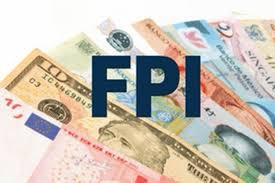
Foreign Portfolio Investors (FPIs) pumped in a net Rs 21,235 crore in domestic markets amid increasing liquidity and gradual opening up of the economy. FPIs invested Rs 22,893 crore into equities but pulled out Rs1,658 crore from the debt segment, taking the total net investment to Rs 21,235 crore between June 1 and June 26.
Prior to this, foreign investors remained net sellers for three consecutive months. They pulled out a net Rs 7,366 crore in May, Rs 15,403 crore in April and a record Rs 1.1 lakh crore in March.